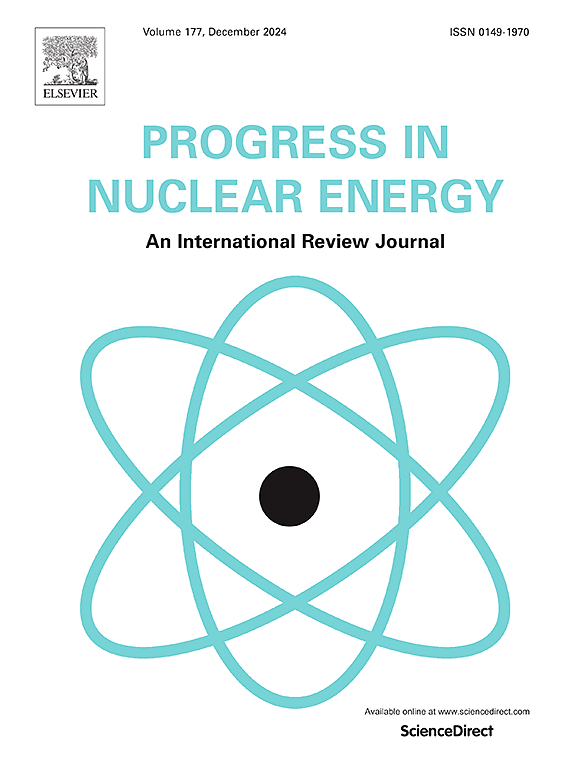依赖于人的可靠性分析和操作事件
IF 3.2
3区 工程技术
Q1 NUCLEAR SCIENCE & TECHNOLOGY
引用次数: 0
摘要
本文研究了具有多个人为故障事件(hfe)的事故序列的相关性。当这些情况出现时,考虑到先前失败的知识,某些hfe的概率可能需要修改。HFE依赖性会对概率安全评估结果产生重大影响,因为HFE的联合概率可能会增加几个数量级。人类可靠性分析(HRA)中最先进的依赖分析依赖于简单的方法和很大程度上的主观基础。本文阐述了运营事件中HRA依赖的经验证据,有助于正在进行的研究,以加强依赖分析的技术和经验基础。这种对六个事件的首次分析确定了三组耦合因素:与工作实践相关的、与任务相关的和与知识相关的。任务相关因素对依赖性的影响最大,因为它们表现为多个任务的特定绩效驱动因素。对一种被广泛采用的依赖分析决策树(DT)的评价表明,该方法是实用的,适合于大多数分析案例。分析确定了一些案例,其中基于事件叙述的DT独立性评估似乎不合适,例如,当DT评估由于干预成功而产生独立性(零依赖)时。因此,向分析师提出了一项建议,质疑独立性评估的合理性。适用于DT的评估方法也可用于评估最近的建模发展,也解决了对更大事件集的重要需求,以便更广泛地覆盖HRA感兴趣的情况。本文章由计算机程序翻译,如有差异,请以英文原文为准。
Dependence in human reliability analysis and in operational events
This paper deals with dependencies in accident sequences with multiple Human Failure Events (HFEs). When these are present, the probability of some HFEs may require modification, given knowledge of preceding failures. HFE dependence can have significant impact on Probabilistic Safety Assessment results, because the joint probability of the HFEs may increase by orders of magnitude. State-of-the-art dependence analysis in Human Reliability Analysis (HRA) relies on simplistic approaches with a largely subjective basis. This paper addresses empirical evidence of HRA dependencies from operational events, contributing to ongoing research to strengthen the technical and empirical basis of dependence analysis. This first-of-a-kind analysis of six events identifies three groups of coupling factors: work practice-related, task-related, and knowledge-related. Task-related factors have the strongest influence on dependence because they manifest as specific performance drivers for the multiple tasks. The evaluation of a widely adopted dependence analysis Decision Tree (DT) suggests that the method is practical and adequate for most analysis cases. The analysis identifies some cases for which the DT assessment of independence does not seem appropriate based on the event narrative, e.g. when the DT assessment yields independence (zero dependence) because of an intervening success. As a result, a recommendation is formulated to analysts to question the plausibility of the assessment of independence. The evaluation methodology applied to the DT may also be used to assess more recent modelling developments, also addressing the important need for a larger set of events for broader coverage of situations of interest for HRA.
求助全文
通过发布文献求助,成功后即可免费获取论文全文。
去求助
来源期刊

Progress in Nuclear Energy
工程技术-核科学技术
CiteScore
5.30
自引率
14.80%
发文量
331
审稿时长
3.5 months
期刊介绍:
Progress in Nuclear Energy is an international review journal covering all aspects of nuclear science and engineering. In keeping with the maturity of nuclear power, articles on safety, siting and environmental problems are encouraged, as are those associated with economics and fuel management. However, basic physics and engineering will remain an important aspect of the editorial policy. Articles published are either of a review nature or present new material in more depth. They are aimed at researchers and technically-oriented managers working in the nuclear energy field.
Please note the following:
1) PNE seeks high quality research papers which are medium to long in length. Short research papers should be submitted to the journal Annals in Nuclear Energy.
2) PNE reserves the right to reject papers which are based solely on routine application of computer codes used to produce reactor designs or explain existing reactor phenomena. Such papers, although worthy, are best left as laboratory reports whereas Progress in Nuclear Energy seeks papers of originality, which are archival in nature, in the fields of mathematical and experimental nuclear technology, including fission, fusion (blanket physics, radiation damage), safety, materials aspects, economics, etc.
3) Review papers, which may occasionally be invited, are particularly sought by the journal in these fields.
 求助内容:
求助内容: 应助结果提醒方式:
应助结果提醒方式:


